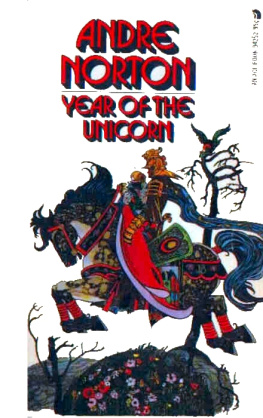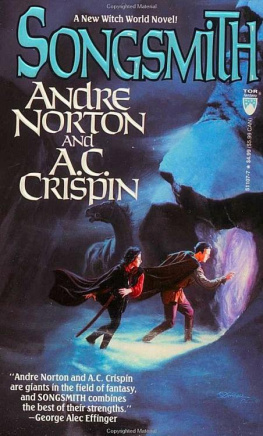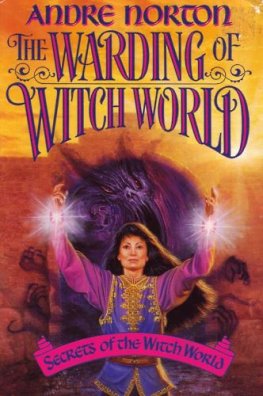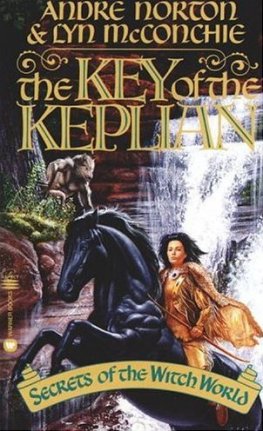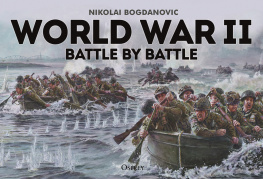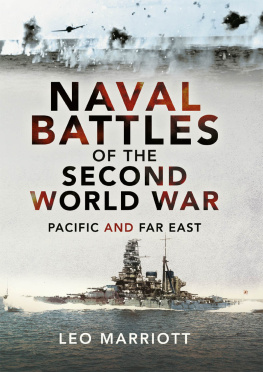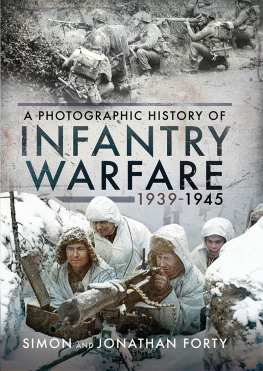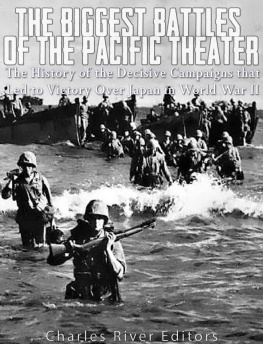Year of the Unicorn
Andre Norton
(1965)
CONTENTS
In the days of the first spring flood in the Year of the Gryphon the Lords of High Hallack made their covenant with the Were Riders of the Waste. Those who came to speak with the lords wore the bodies of men but they were not of humankind. They were dour fighters ...men-or creatures-of power who ranged the wilderness and were greatly feared. How many there were no man knew but that they had a force beyond human knowledge was certain. Shape-changers, warlocks, sorcerers...rumour had it they were all that and more.
Exiles from afar in space and time, who had opened doors on forbidden things and loosed that which could not be controlled, they wandered until the stars moved into new patterns and they might again seek the gate into their homeland and ask admittance.
Now, in the Year of the Unicorn, they took brides from among men, according to the bargain, and rode eastwards. And among them rode Gillan, the waif, the nameless, who seemed to see beyond the shape of things that were.
News of Far Faring at Norstead
HOW DOES one know coming good from coming ill? There are those times in life when one welcomes any change, believing that nothing can be such ashes in the mouth, such dryness of days as the never altering flood of time in a small community where the outside world lies ever beyond gates locked and barred against all change. From the bell tower of Abbey Norstead-and how many years had sped since a bell had pealed from there?-one could see the unending rippling of the Dales, on and on to the blue-gray of Fast Ridge. On bright days, when the sun drove away the mist curtain, the darkened fringe of the forest cloaking Falthingdale broke the moss-carpet to the west, and the harsh, sky-clutching claws of Falcon-Fist made a sharp point to draw the eyes eastward. But otherwise there were just the Dales with their age-old shutting out of man and his affairs. They had lain so before his coming; they would remain so at his going. But as yet he had his part in them, and here in Norsdale it would seem that quiet land had conquered the natural restlessness of the breed of mankind, slowing all life force to the pace of those everlasting hills.
Yet this was a land lately embattled, wherein war flashed like a drawn sword, thrust as a cruel spear, sung in the flight of arrows, or lay panting of breath behind a half-riven shield. War...uneasy peace for a hand-finger count of years...then war again. In the first days open field battle, with one army at the throat of another. And then, as men fell, as time gnawed, small raiding bands flashing out of a wilderness to use wolf-fangs. Then-with the invaders from overseas driven back to their first handhold on the coast-a final destruction and peace which those, who had been nurtured from their cradles under the flapping hawk banners, who had heard naught but sword talk for the span of their lives, met awkwardly and ill at ease.
This we of Norsdale knew, yet the war tongues had never licked inland so far as to sear our valley. And only those who had survived terror and worse and fled to us for refuge bore battle tidings within the gates of the Abbey. We had never seen the Hounds of Alizon at their harrying, and for that, the Dames of Norstead gave thanks on their knees night and morning in the Chapel.
Abbey Norstead held me because of that war tide, and there were times when I thought that its stifling peace would choke me. For it is very hard to live among those who are no kin to you, not only in blood but in spirit and desire and mind. Who was I? Anyone walking those precise paths in the garden below could have given me name and past, and would have told you at the asking:
That one? Ah, that is Gillan, who works with Dame Alousan in the herbarium. She came here eight years ago with the Lady Freeza, being a handmaiden of her household. She has some small knowledge of herbs, a liking for her own company, no beauty, no great kindred-naught to give her any importance in the world. She comes to the Chapel services morn and night, she bows her head, but she takes no vows. She sits with the maids at times and plies her needle as is fit, but she has not asked to serve the Abbey. She speaks little
Aye, she speaks little, my Dames, and maids, and those ladies who have taken refuge here. But she thinks much, and she tries to remember. Though that is another thing which time denies, or perhaps the unchanging pattern of this land and life denies.
For Gillan is not of the blood of High Hallack. There was a ship. Always can I remember so much, of the tossing of a ship on a sea where waves ran high, avid to feed upon the work of mens hands. A ship of Alizon, that much also I remember. But that I am of Alizon-no. There was a purpose in my being on that ship, and, small and young a girl child as I then was, I feared that purpose. But he who brought me there was under a mast which the wind and wave brought down upon the deck. And then no other of his company knew why I was among them.
That was during the time of raids when the lords of High Hallack, fighting to free their homeland from the Hounds of Alizon, swept down and struck a lightning blow at the port through which came the invaders life-blood of supplies and men. And so was I also swept up with those supplies and taken to one of the mountain holds.
The Lord Furlo, I believe, had some private knowledge or suspicion of my past. For he sent me under guard to his lady wife, with the command that I be well cared for. Thus I was a fosterling in that household for a space. But that also did not last, for Alizon arose in might and the Lords were driven back and back. In the depths of harsh and heavy winter we fled across the barren land and into the upper dales. At last we came to Norstead, but the Lady Freeza came only to die. And her lord lay with an arrow in his throat back in the passes-whatever he had suspected concerning me unsaid. So that I was again adrift in strange, if placid, waters.
I need only to look into any mirror within these walls to know that I was not of the breed of Hallack. Whereas their womenkind were fair of skin, but with a fine colour to their faces, their hair as yellow as the small flowers bordering the garden walks in the spring, or brown as the wings of the sweet singing birds in the stream gullies, I was of a flesh which browned under the sun, but held no colour in cheek. And the hair I learned to plait tightly about my head, was of a black as deep as a starless night. Also...I thought odd thoughts. But even before I came to Norstead, while still I played the part of fosterling, I had learned to keep such thoughts to myself, for they alarmed and dismayed those about me.
There is a loneliness of spirit which is worse than loneliness of body. And in all Norstead during those years, I had found only two to whom I might turn for company of a kind. The Dame Alousan was past the span of middle life when I came. She, too, was apart from her companions of the Order. Her life was in the gardens, and in the rooms wherein she worked with herbs, distilling, combining, making those powders and salves, those flasks of liquids, which soothed, healed, pleasured mankind. Noted she was, so that fighting bands in the high hills would send men trained for swift travelling to beg her for those products of her knowledge and hands which would aid in the healing of sore wounds, or the fevers and rheums which came of living in the open no matter what the season or weather.
And when I was set adrift in Abbey Norstead, she looked upon me, keenly, as usually she looked only on some herb new come to her (for she was sent packets of strange things from time to time, by her ordering gifts). Then she took me into her service and I found that at first all I needed, for it was learning of a demanding kind, and my mind was thirsty for occupation. For some years thereafter I was content.
Next page
